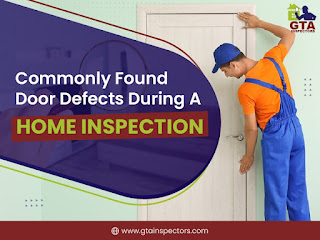Important gas connection safety tips for homeowners
Natural gas, a fossil fuel which produces water vapour, carbon dioxide and tiny quantities of nitrogen oxide, when burned. Natural gas is a source of energy for numerous consumer goods like furnaces as well as dryers, fireplaces, and stoves.
The most common thing you will find in every house are gas lines. When you go on a regular snagging and property inspection There are some problems with gas connectivity that have been reported. Gas connections could be dangerous when they are not managed properly. It is possible to protect your family members and your property by following simple safety precautions to handle gas connections.
Pro Tip: Keep your eyes and nose alert to stop any leaks that may occur in the gas line. Make sure you turn off your main switch whenever gas is not needed.
What do you do in the event of gas leakage within your home?
What should be the next step after you discover a gas leak is crucial. If you suspect there’s a major gas leakage from your home at any time there is a few quick steps to take.
1.Evacuate this property
The evacuation of the house will aid you and your family to remain in a safe area should the gas ignite. If the leak is significant the procedure should be carried out when putting an insignificant distance between yourself with the house.
2.Leave your property
As you leave your property ensure that you keep the windows and doors open. This will allow the gas to escape from your property.
3.Call immediately for assistance:
If you’re in a safe distance from your home, contact immediately for assistance and have the leak repaired.
To increase the safety of gas connections for your residence:
1.Getting Gas connections checked on a regular basis:
Regular gas connection property inspections The most significant gas safety precautions are the most powerful. However ensure that you get an up-to-date photocopy of the safety certificate when renting a home. Every homeowner must have their gas connection checked each year.
2.Signs for carbon monoxide poisoning
Carbon monoxide can be extremely dangerous. That’s why it is important to be aware of the warning signs and precautionary measures. There is a chance that you’ve experienced exposure to natural gas but didn’t even realize that there was a leak.
Carbon monoxide is generated by fuel that does not burn out completely. The most frequent places to look for Carbon monoxide leaks are open fires cookers, stoves, water central heating, as well as boilers. A few of the most well-known symptoms of carbon monoxide leaks:
- Pale skin
- Dizziness
- Cheat on aches and pains
- Nosebleeds
- Influenza-like symptoms
Installing carbon monoxide alarms:
Install a carbon monoxide detector installed if you frequently make use of boilers or stoves. It is possible to detect the presence of carbon monoxide within your house will be made much easier with a carbon monoxide alarm. If you’ve been using gas appliances for some time and have not installed the detector. In order to detect leaks and safeguard your family members.
Insist on installing this carbon Monoxide detector in your room that has gas connections. If the alarm sounds, remain calm , and increase the airflow in the room and reduce the power of all gas-burning appliances. Contact a gas certified connectivity engineer.
Make sure you inspect the chimneys and the vents of your home:
Cleaning out your vents and chimneys is the easiest method to reduce gas-related dangers. Vents are crucial to help the gas to burn completely. Make sure your chimneys are clean and check them twice each year to ensure your home’s safety.
Takeaway:
After having read this blog post, you’re aware of the best ways to safeguard yourself and your family members from gas leak dangers. Making sure each gas appliance is examined can reduce the risk of suffering from unnecessary difficulties. As a homeowner, you should always be aware of the warning indicators that indicate gas leaks. It is possible to purchase an alarm property snagging inspection prior to closing the deal, find out about gas connectivity issues when purchasing the property to identify any issues with gas connectivity.

.png)


Comments
Post a Comment